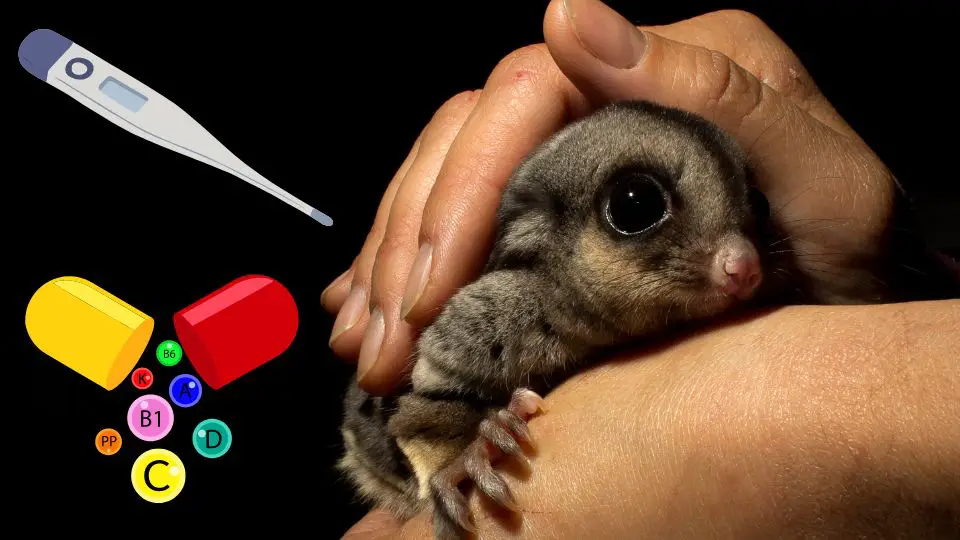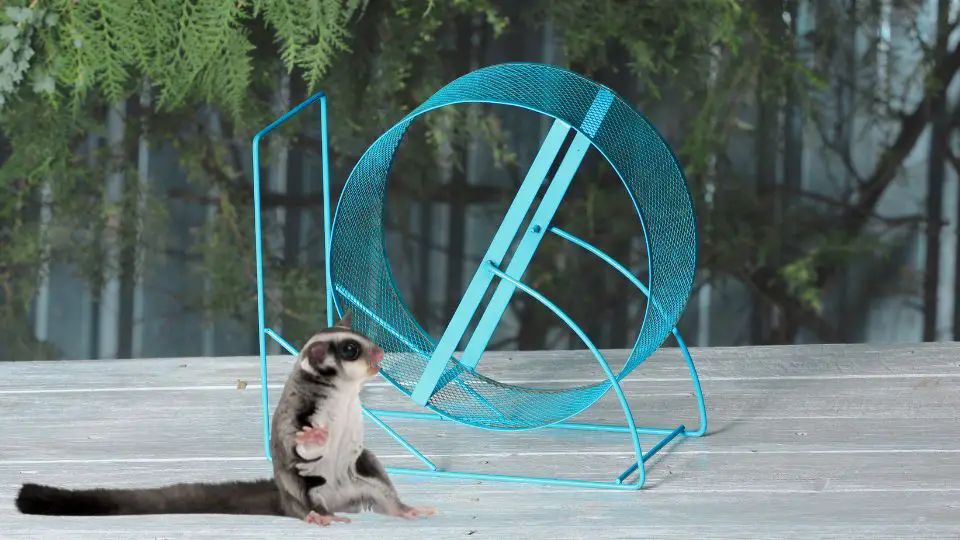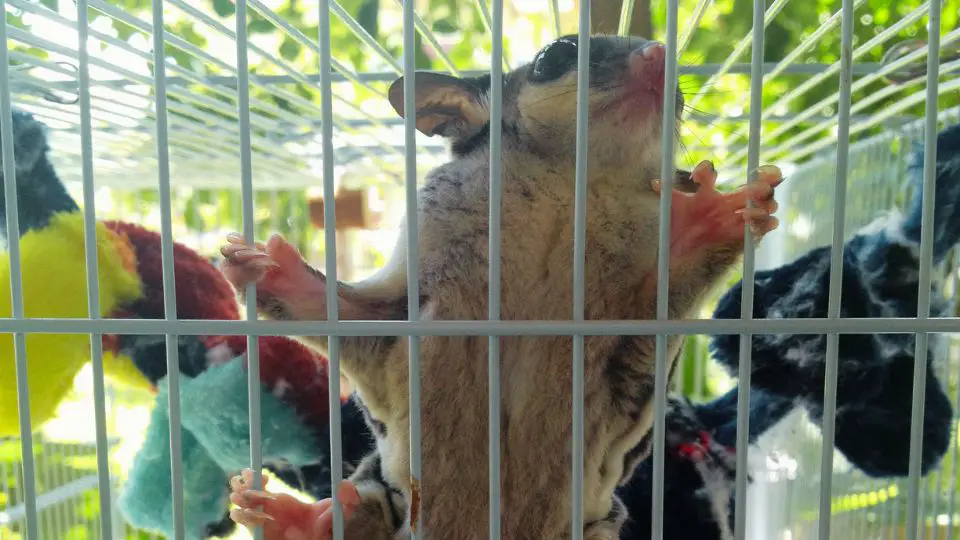There are many reasons why your sugar glider might be moving a little slower than usual. Maybe it’s because they’re not feeling well, or maybe they’re just tired. We must recommend from the start that, if you’re concerned about your sugar glider’s health, to consult a veterinarian.
If your sugar glider is normally active and you notice a sudden change in their activity level, it could be a sign that something is wrong. Sugar gliders are very good at hiding their illness, so a sudden change in behavior is often one of the first signs that something is wrong.
In this article, we will take a look at the most common reasons why a sugar glider may move slow and what can you do in order to help them feel better.
Why is my sugar glider moving slow
If you’ve noticed your sugar glider moving a little slower than normal, it could be due to a variety of reasons. Sugar gliders are naturally active creatures, so any deviation from their norm can be cause for concern.
Let’s take a look at some of the potential reasons why your sugar glider may be moving slow or is being less active.
Sickness
If your sugar glider is moving slow and also appears to be listless, this could be a sign that they are sick. Some signs that indicate a health of problem include:
- lethargy,
- lack of appetite,
- dehydration.
One method to see if your sugar glider is sick is by gently pinch up its skin. If the skin stays up in a tent, this means dehydration is occurring.
Make sure that your little pet has access to fresh water at all times, and try offering them some of their favorite foods to see if they will eat. If they do not seem to be improving, or if their symptoms worsen, take them to the vet as soon as possible.
Malnutrition
One of the most common reasons why a sugar glider moves slow or being lethargic is due to malnutrition. Sugar gliders require a very specific diet in order to stay healthy, and if they do not get the right nutrients, they can become quite ill. A diet that is not properly balanced can lead to a variety of health problems, including:
- anemia,
- weight loss,
- weakness.
A sugar glider’s diet should consist of:
- Fruits – such as apples, bananas, blackberries, and blueberries;
- Vegetables – such as sweet potatoes, carrots, and lettuce;
- Protein – such as cooked chicken, hard-boiled eggs;
- Insects – such as dried mealworms and crickets.
Pregnancy
If you have a female glider, pregnancy could be one of the reasons why she moves slow. A pregnant glider will often exhibit the following symptoms:
- weight gain,
- enlarged abdomen,
- nesting behavior.
Even after pregnancy, a glider will often move a little slower as they’re body require more calcium, so make sure to provide your glider with a calcium supplement.
Injury
Another potential reason why your sugar glider may be moving slow is if they have sustained an injury. Sugar gliders are very active and agile, so any sort of fall or injury can be serious.
If you leave your pet outside the cage, make sure that the area is safe and secure. If you think that your sugar glider may have been injured, look for signs such as:
- limping,
- bruising,
- swelling.
Age
One potential reason for your sugar glider’s lethargy could be age and it’s nothing to be worry about. As sugar gliders age, they naturally become less active. This is perfectly normal and nothing to worry about.
Sugar gliders have a lifespan of about 10-12 years, so if your sugar glider is on the older side, this could be why they are moving slow.
What to do if your sugar glider is moving slowly
If you’ve noticed that your sugar glider is moving a little slow, there are a few things that you can do to help them get back to their normal self. First, check to see if they are sick or injured. If they seem to be in pain or if their symptoms appear to be worsening, take them to the vet right away.
Next, make sure that they are getting enough to eat and that their diet is balanced. A sugar glider’s diet should consist of fruits, vegetables, protein, and insects.
Finally, if your sugar glider is simply getting older, there is no need to worry. As they age, sugar gliders naturally become less active. This is normal and nothing to be concerned about.
Sugar gliders are unique and amazing creatures. If you think something may be wrong with your sugar glider, don’t hesitate to talk to your vet. They can help you determine what may be causing the problem and how to best help your sugar glider feel better.
Conclusion
There are a few potential reasons why your sugar glider may be lethargic or moving slow. If you think something may be wrong, take them to the vet right away. Otherwise, make sure that they are getting enough to eat and that their diet is balanced. If your sugar glider is simply getting older, there is no need to worry. As they age, sugar gliders naturally become less active. This is normal and nothing to be concerned about.







